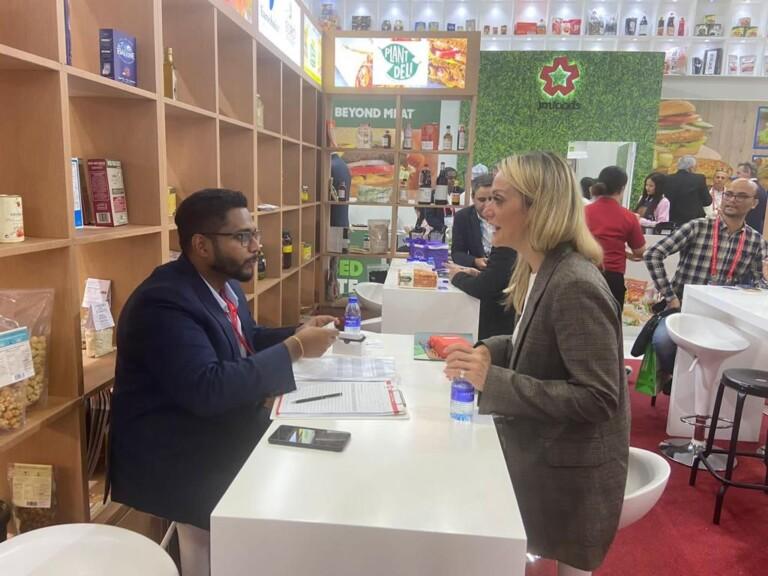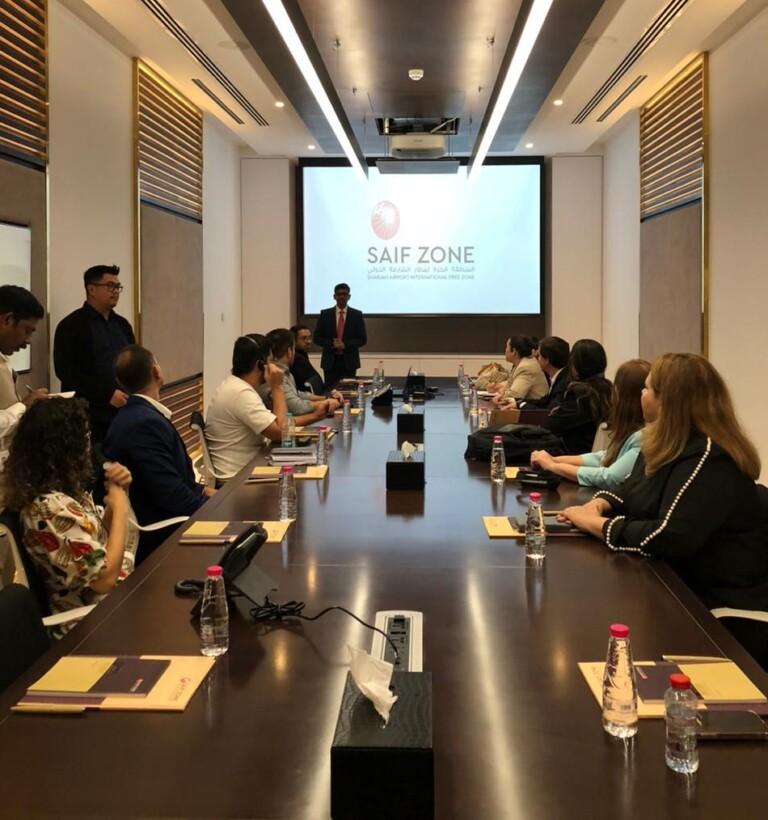[:en]Fourteen Brazilian rural entrepreneurs embarked on a mission to the Middle East last week. The group, supported by the Brazilian Confederation of Agriculture and Livestock (CNA), went to Dubai on a series of activities from February 20 to 24, including the participation in Gulfood, the region’s largest food and beverage fair.
The mission is part of the Agro.BR project, a partnership between CNA and Apex Brasil, which facilitates international business to increase the presence of small and medium-sized rural producers in foreign trade and diversify Brazil’s export portfolio.
The participants were companies representing the açaí, coffee, breakfast cereal, fruit, cocoa nibs, vegetable drinks, cassava gum (tapioca), ready-made teas, chocolate drinks, juices, wines, tomato sauce, and pulp sectors. All of them are interested in exporting to Middle Eastern countries.
Rita Padilla, CNA’s International Relations advisor, this was a unique opportunity for the farmers. “They have participated in a true immersion, not only in one of the largest food and beverage fairs in the world but also in the technical visits, to get to know and understand the best strategy to be inserted in that market,” she says.
The schedule in Dubai included participation at Gulfood with product exhibitions, in addition to commercial meetings with potential partners or clients, seminars, and visits to companies and local hypermarkets.

Gulfood is considered the main annual event of the food and beverage sector in the Middle East and one of the largest in the world. In this edition, according to the organizers, there were more than 5,000 exhibitors from 120 countries, the largest participation of exhibitors and visitors ever recorded.
Of the 14 companies served by Agro.BR, seven are exhibitors at Gulfood. The entrepreneurs highlight the importance of participation. “This is a market that we are very interested in attending. We have participated in this fair since 2019. In 2020 we got our first client and this year we are strengthening partnerships, meeting clients, and opening new businesses,” said Suany Gomes, from Xingu Fruit, an organic açaí pulp company.
Brazilian farmers in the Middle East
In addition to participating in Gulfood, the group of entrepreneurs also made technical visits to learn more about the local market. One of these visits was to the VeggiTech vertical farm, a technology startup with over 20 years of experience in creating sustainable farms. Aiming to overcome the challenges of food production in the Arab Emirates, the company specializes in extreme climatic conditions, with temperature, humidity, and lighting-controlled farms.
Another strategic visit took place at the Sharjah Airport International Free Zone Authority (SAIF Zone), a tax-free zone located in the city of Sharjah, an emirate near Dubai. “They learned how to open a business to serve SAIF, which operates in all seven countries of the UAE. They saw production licenses, visa facilities, and so on. There are more than 8,000 registered companies, from 165 different countries,” said Rita.

The family-owned supermarket chain, Organic Foods & Café, has seven stores in Dubai. “The producers were able to compare the prices charged in the market, the packaging issue, and how the products are presented on the shelves, in addition to seeing up close what is trending there. There is a growth in the Emirates in the search for products with organic certification, a great opportunity for Brazilian companies,” says Rita.
Brazil is currently the second largest food supplier to the Middle East, behind India. The main export destinations are Iran, Saudi Arabia, and the United Arab Emirates. In 2022, Brazil’s bilateral trade with the UAE alone was approximately US$ 2.8 billion in agricultural products, with meat, sugar, coffee, dairy products, fruits, and nuts standing out – responsible for 47% of total exports.[:zh]上周,14 名巴西农村企业家开始前往中东执行任务。 在巴西农业和畜牧业联合会 (CNA) 的支持下,该团队于 2 月 20 日至 24 日前往迪拜开展了一系列活动,包括参加该地区最大的食品和饮料展览会 Gulfood。 该任务是 Agro.BR 项目的一部分,该项目是 CNA 和 Apex Brasil 之间的合作伙伴关系,旨在促进国际业务,以增加中小型农村生产者在对外贸易中的存在,并使巴西的出口组合多样化。 参与者是代表巴西莓、咖啡、早餐麦片、水果、可可粒、蔬菜饮料、木薯胶(木薯)、现成茶、巧克力饮料、果汁、葡萄酒、番茄酱和果肉行业的公司。 他们都对出口到中东国家感兴趣。 CNA 的国际关系顾问丽塔·帕迪拉 (Rita Padilla) 说,这对农民来说是一个难得的机会。 “他们真正沉浸其中,不仅参加了世界上最大的食品和饮料展览会之一,还参加了技术参观,以了解和了解插入该市场的最佳策略,”她说。 在迪拜的日程安排包括参加 Gulfood 的产品展览,此外还有与潜在合作伙伴或客户的商业会议、研讨会以及参观公司和当地大型超市。

Gulfood 被认为是中东食品和饮料行业的主要年度盛会,也是世界上最大的盛会之一。 据主办方称,本届展会有来自 120 个国家的 5,000 多家参展商,是有史以来参展商和观众人数最多的一次。 在 Agro.BR 服务的 14 家公司中,有 7 家是 Gulfood 的参展商。 企业家强调参与的重要性。
“这是一个我们非常有兴趣参加的市场。 我们自 2019 年以来参加了这个展会。2020 年,我们有了第一个客户,今年我们正在加强合作伙伴关系、会见客户并开展新业务,”有机巴西莓纸浆公司 Xingu Fruit 的 Suany Gomes 说。
中东巴西农民 除了参加Gulfood外,企业家团还进行了技术参观,了解当地市场。 其中一次访问是参观 VeggiTech 垂直农场,这是一家在创建可持续农场方面拥有 20 多年经验的科技初创公司。 为了克服阿拉伯联合酋长国粮食生产的挑战,该公司专门研究极端气候条件,以及温度、湿度和照明控制农场。
另一次战略访问是在沙迦机场国际自由区管理局 (SAIF Zone) 进行的,这是一个位于迪拜附近的酋长国沙迦市的免税区。 “他们学会了如何开办一家企业来为在阿联酋所有七个国家开展业务的 SAIF 提供服务。 他们看到了生产许可证、签证设施等。
有来自 165 个不同国家的 8,000 多家注册公司,”丽塔说。

本周初,企业家们参加了与潜在买家、记者和战略嘉宾的会面,交流经验和商业期望。 Agro.BR 代表团会见了两家具有不同细分市场的连锁超市——Organic Foods & Café 和家乐福连锁店。
家族经营的连锁超市 Organic Foods & Café 在迪拜拥有七家门店。 “生产商能够比较市场上的价格、包装问题以及产品在货架上的展示方式,此外还能近距离了解那里的趋势。 阿联酋越来越多地寻找具有有机认证的产品,这对巴西公司来说是一个很好的机会,”Rita 说。
巴西目前是仅次于印度的中东第二大食品供应国。 主要出口目的地是伊朗、沙特阿拉伯和阿拉伯联合酋长国。 2022 年,仅巴西与阿联酋的农产品双边贸易额就约为 28 亿美元,其中肉类、糖、咖啡、乳制品、水果和坚果最为突出,占出口总额的 47%。[:]


